Cough and Chest Congestion: 5 Effective Strategies for Unlocking Relief
introduction:
Cough and chest congestion are common opponents that frequently appear unannounced to disturb our daily lives and put our respiratory health at risk. As the seasons change and the environment changes, these symptoms might occur for a variety of reasons, ranging from ordinary colds and allergies to serious respiratory infections. Their pain can greatly impair our capacity to breathe easily and lead active, healthy lives.

An in-depth discussion of the many aspects of this thorough guide will help us comprehend the underlying causes of these respiratory issues, interpret the symptoms that are commonly linked with cough and chest congestion, examine lifestyle modifications, and over-the-counter medications, and learn about a variety of natural solutions. We will also go over why it’s crucial to get expert advice to receive a more precise diagnosis and suitable course of therapy.
Cough and Chest Congestion: Understanding the Root Causes
Respiratory infections:
- The most prevalent causes include the common cold, influenza, and respiratory syncytial virus (RSV).
- These infections produce respiratory tract inflammation, which results in coughing and chest congestion.
- Understanding the specific virus or bacteria causing the infection is essential for targeting therapy.
Allergies:

- Environmental allergens such as pollen, dust mites, pet dander, and mold can trigger allergic reactions.
- The body’s immune response results in the release of histamines, which cause inflammation and congestion.
- Identifying allergens and reducing exposure is key to controlling allergy symptoms.
Environmental Factors:
- Exposure to pollution, smoke, or irritating fumes can irritate the respiratory system.
- Occupational hazards, such as workplace contamination, may contribute to chronic cough and congestion.
- Assessing and reducing environmental triggers is critical to long-term respiratory health.
Understanding these offenders provides the basis for developing effective strategies. By identifying the specific cause behind the cough and chest congestion, individuals can adjust their approach to symptom relief. Whether it’s taking preventative measures, managing allergies, or addressing environmental concerns, a targeted strategy ensures a more successful battle against these respiratory challenges. In later sections of this guide, we’ll explore the symptoms associated with these offenders and discuss personalized approaches to combating them.
Cough and Chest Congestion: A Range of Symptoms:
Different Types of Cough:

A Dry Cough:
- Characterized by mucus or the absence of mucus.
- Often associated with irritation or inflammation in the throat.
- Can be triggered by environmental factors, allergies, or viral infections.
Wet (Productive) Cough:
- Involved in mucus or mucus production.
- Indicates an attempt by the respiratory system to clear the airways.
- Usually associated with respiratory infections or chronic conditions.
Persistent Cough:
- Lasts for an extended period, usually more than three weeks.
- May be indicative of an underlying health problem such as asthma, acid reflux, or chronic bronchitis.
Effects of Chest Congestion:

Difficulty in Breathing:
- Chest congestion can restrict airflow, making it difficult to breathe.
- Individuals may experience shortness of breath or chest tightness.
Chest Pain:
- Chest pain or discomfort may accompany congestion.
- Coughing and excessive production of mucus can lead to chest pain.
Night Symptoms:
- Symptoms often worsen at night, disrupting sleep.
- Postnasal drip and increased cough during sleep can be particularly distressing.
Cough and Chest Congestion: Knowing when to seek medical attention:
Persistent or Worsening Symptoms:
Symptoms that persist or worsen over time may indicate a more serious underlying condition.
A chronic cough or persistent chest congestion should be referred to a healthcare professional.
Symptoms of infection:
Timely medical intervention is crucial to prevent complications.
Shortness of breath:
Severe chest congestion that causes significant difficulty in breathing requires immediate medical attention.
This could be a sign of a more serious respiratory condition.
Cough and Chest Congestion: Lifestyle adjustments for prevention
Making adjustments to an active lifestyle can significantly contribute to preventing and reducing the effects of cough and chest congestion. By adopting healthy habits and creating an environment conducive to respiratory health, individuals can reduce the likelihood of these symptoms. Let’s explore key lifestyle changes for prevention:
Importance of staying hydrated:
1. Hydration and mucus production:
- Drinking adequate amounts of water helps maintain optimal hydration levels.
- Well-hydrated individuals often experience more comfortable mucus production, which helps prevent congestion.
2. Comforting warm liquids:
- Hot tea, warm water with honey, or clear broth soothes the throat and relieves irritation.
- Maintaining a clean and allergen-free environment:
3. Regular cleaning:
- Dusting, vacuuming, and regular cleaning help reduce exposure to common allergens.
- Pay attention to areas prone to dust accumulation, such as carpets, curtains, and bedding.
4. Allergen Management:
- Identify specific allergens that trigger respiratory symptoms and reduce exposure to them.
- Consider using an air purifier and allergen-proof bedding for added protection.
Adding immune-boosting foods to your diet:
A balanced diet:
A diet rich in fruits, vegetables, and whole grains provides essential nutrients for overall health.
Antioxidant-rich foods support the immune system and reduce the risk of cough and chest congestion.
Foods rich in vitamin C:

Citrus fruits, strawberries, and bell peppers are sources of vitamin C, known for its immune-boosting properties.
Role of regular exercise in respiratory health:
Aerobic exercise:
Regular physical activity promotes heart health and strengthens respiratory muscles.
Engage in activities like walking, jogging, or cycling to increase lung capacity which helps to reduce the risk of cough and chest congestion.
Breathing Exercises:
Exercises such as deep breathing and diaphragmatic breathing can improve respiratory function and reduce the likelihood of shallow breathing patterns. it may help to improve your health and avoid severe cough and chest congestion.
Natural Remedies and Home Remedies:
When it comes to managing cough and chest congestion, many people find relief through natural remedies and home remedies. These approaches, often rooted in traditional practices and natural remedies, can complement conventional treatments. Here is a look at effective natural remedies and home remedies:
1. Steam inhalation for chest congestion:

How it works:
Breathing in warm, moist air helps relax the airways and loosen mucus.
Heat can also reduce chest tightness and discomfort.
Procedure:
- Boil the water and pour it into a bowl.
- Place your face over the bowl, covering your head with a towel to trap the steam.
- Inhale deeply for 5-10 minutes, allowing the steam to enter your airways.
2. Honey and herbal tea for sore throat:
Benefits of honey:

Honey has natural antiseptic properties and can help relieve a sore throat. It also provides a natural sweetener for herbal teas. Adding honey to herbal tea not only develops the test but also lowers the risks of intense causes of common cough and chest congestion.
Herbal Tea:
Peppermint, ginger, chamomile, and licorice teas are known for their soothing properties.
These teas can help soothe the respiratory tract and relieve coughs.
3. Breathing exercises to reduce shortness of breath:
Take deep breaths:
Practice deep, slow breathing to increase lung capacity and improve airflow.
This can help prevent shallow breathing associated with shortness of breath.
Diaphragmatic breathing:
Instead of shallow chest breathing, focus on breathing from the diaphragm.
Lie on your back and place your hands on your stomach to feel it rise and fall with each breath.
4. Humidifiers and their role in creating a conducive environment:
Increase in humidity in the air:
Humidifiers release moisture into the air, preventing dryness that can exacerbate respiratory symptoms.
This is especially beneficial in dry climates or during the winter months when indoor heating can dry out the air.
Cleaning and maintenance:
Clean humidifiers regularly to prevent mold and bacteria growth.
Use distilled water to avoid introducing impurities into the air.
5. Eucalyptus Oil for Breath Relief:

Anti-inflammatory properties:
Eucalyptus oil has anti-inflammatory and decongestant properties.
Adding a few drops to warm water to inhale the steam or using it in a diffuser can provide relief.
In the complex dance of respiratory health, the journey to relief from cough and chest congestion is an actionable process. As we conclude this comprehensive guide, we consider the multifaceted strategies that have been explored to empower individuals to manage and alleviate these common but disruptive symptoms.
Throughout our research, we’ve explored the complications of cough and chest congestion, understood their culprits, decoded their symptoms, and uncovered effective strategies for prevention and relief. From lifestyle adjustments that form the foundation of respiratory wellness to natural remedies and home remedies rooted in centuries-old wisdom, the tools of empowerment are diverse and accessible.
The journey continues with natural remedies and home remedies, where the relaxing embrace of steam inhalation, the soothing sweetness of honey, and the mindful practice of breathing exercises soothe those seeking relaxation.
However, this journey is not a solitary one. Professional guidance stands as a beacon, guiding individuals through the maze of symptoms and providing appropriate solutions. Recognizing when to consult a healthcare professional is an important step toward accurate diagnosis and comprehensive care, ensuring that underlying problems are addressed expertly.
May this guide serve as a compass on your journey to unlock relaxation, enabling you to breathe freely and embrace a life of breath harmony. Here’s to finding the wellness and empowerment that comes with understanding, prevention, and effective strategies for dealing with coughs and chest congestion.


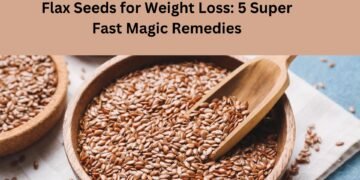
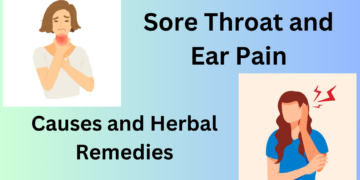





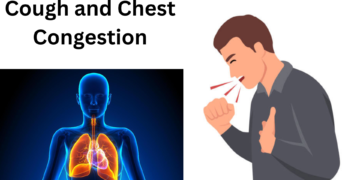



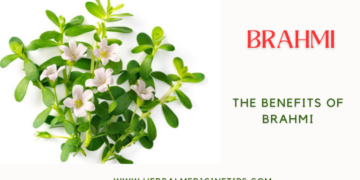

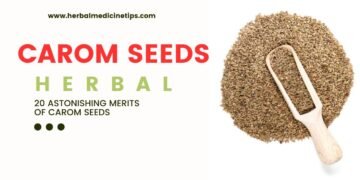



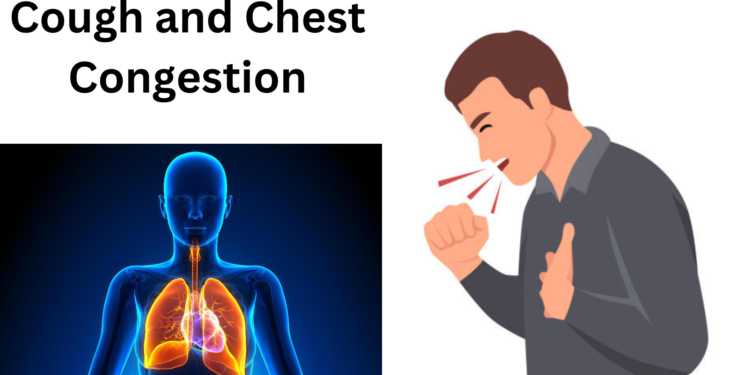








Discussion about this post